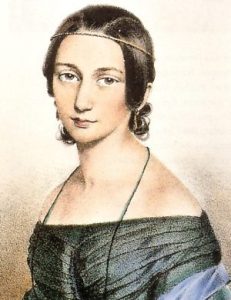
A week ago I spent several days in a most unusual place—a residential library in a small village in Wales. More than a century ago, as a tribute to one of the longest-serving Prime Ministers in England, the library was built to serve the public and allow ordinary citizens to have access to a valuable collection of books in an atmosphere that encourages private study and thought.
The Gladstone Library is a remarkable place, hidden away in a small village and apparently unknown even to many local residents. There are no television sets provided in the library or the residential area and very few radios, although Internet access is available everywhere. The Gladstone Library is open free of charge to anyone who wants to use its facilities. Rooms and meals are provided at a reasonable cost. Small conferences are often held there to allow scholars to get together and exchange ideas as well as sharing research papers, which are often later published.
Although Gladstone himself was not a prolific author, unlike his lifelong rival Benjamin Disraeli, his spirit of gentle liberalism pervades the dark Victorian-style rooms and silent library. I spent hours sitting in a comfortable chair in a dark-green Victorian style drawing room, watching the rain come down on the trees outside the long windows (it is Wales, after all) and doing revisions on my latest novel. I’ve never found a more

congenial place to work. No sounds of traffic, no fire sirens, no talkative pedestrians passed by. Everyone inside the building seemed to conspire to keep their voices low and to allow the privacy that encourages productivity. No need for the ubiquitous headphones of startups in Silicon Valley as people try to work in open offices.
From the Gladstone Library I took the train down to London where the next several days were spent in the raucous atmosphere of what must be one of the noisiest cities in Europe. Construction work throbs a constant hammering sound all day long, ambulances and police emergency cars with sirens wailing careen through the chaotic traffic, and the hum of human voices in a dozen languages throbs through the streets.
London is an exciting city with a vibrant entertainment industry and thousands of tourists eager to visit the historic sites and great museums of the city. You can walk
 though one square and find a dozen ideas for stories or photos or music—whatever form your creativity takes. But I wonder how many of the great ideas that are born in vibrant cities like London ever come to fruition.
though one square and find a dozen ideas for stories or photos or music—whatever form your creativity takes. But I wonder how many of the great ideas that are born in vibrant cities like London ever come to fruition.
Perhaps we ought to build little oases of quiet within all of the great, exciting cities of the world. The ebb and flow of quiet and excitement are both important. As our world grows every noisier with more and more stimulation to every sense, we may need to increase our allotment of space and time to quiet pursuits in quiet places.
 piano lessons are not as common as they were a generation or two ago, many amateur musicians still enjoy playing when they have a chance.
piano lessons are not as common as they were a generation or two ago, many amateur musicians still enjoy playing when they have a chance.
